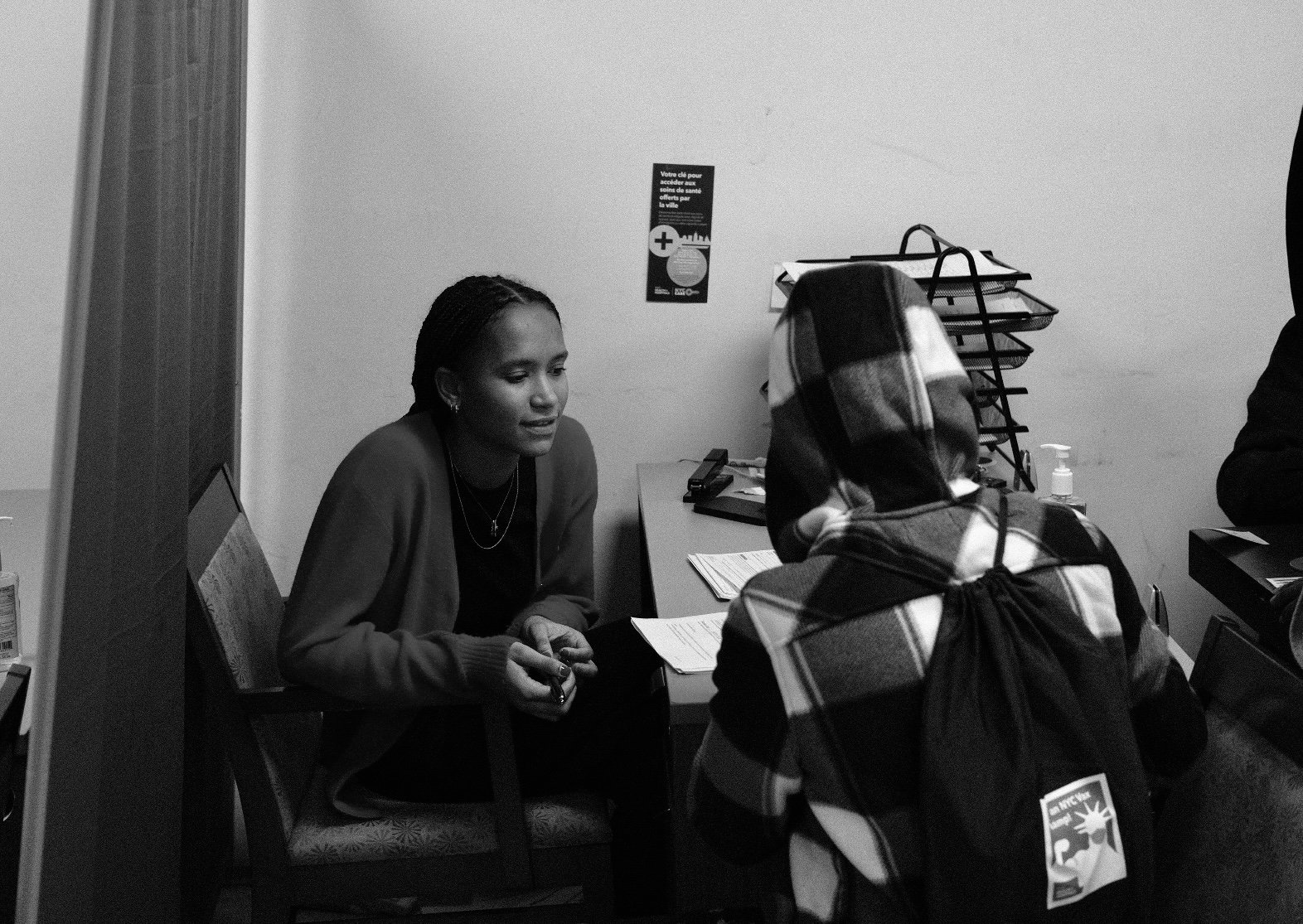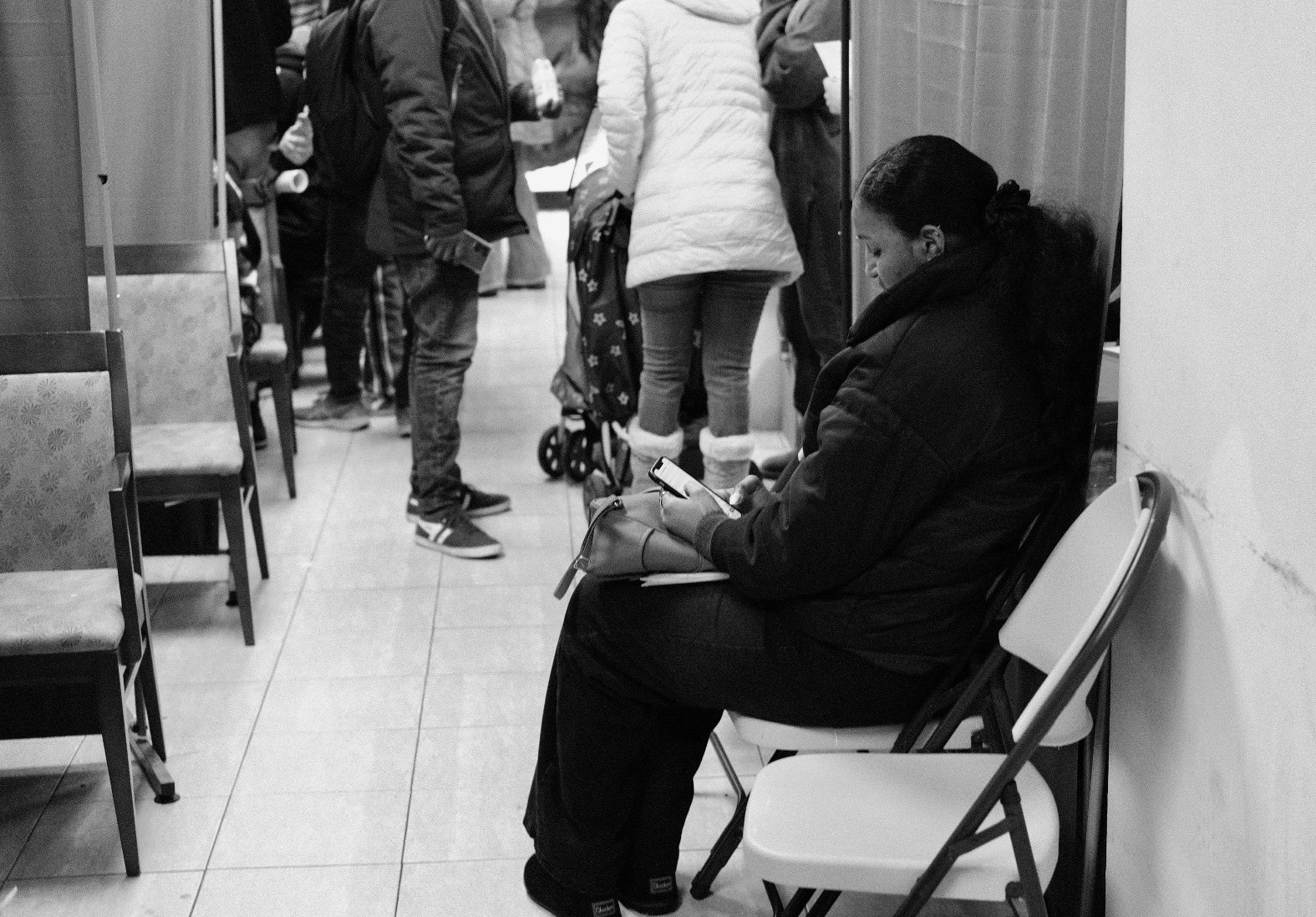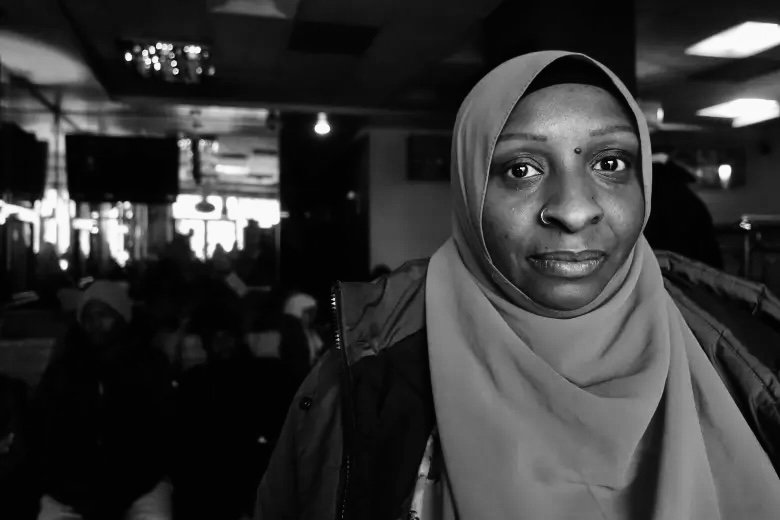
Afrikana supports Harlem and the Bronx’s newest and oldest neighbors, both long-standing residents and recent migrant arrivals. It specifically focuses on black and Muslim migrants who face significant barriers to accessing services, including legal, workforce, and benefit assistance.
Vision: Contribute to a world where all people have fair and equitable access to the resources they need to survive and thrive
Mission: Enable Harlem and Bronx community members to secure resources and services with care and compassion
Purpose: Connect black and Muslim residents and migrants to city and non-profit services that they need
Values: Dignity, compassion, respect
our work:

What challenges are Afrikana trying to address?
Historically, New York absorbed and integrated new migrants with success. Since August 2022, due to the volume and diversity of nationalities arriving, the city’s social service and legal systems are overwhelmed with applications.
Most migrants struggle to secure essential resources like housing, food, and employment, which are spread across multiple providers. Individuals need tactical support navigating the system involving numerous offices and various providers. In some cases, clients need support with translation because registration forms are not in their language, or they have low literacy. They also need emotional support and encouragement because they are restarting their lives and navigating a complex system.

How does Afrikana address these challenges?
Through Afrikana, clients are linked to public benefits, including IDNYC, Fair Fares, and if eligible then food stamps through the New York Human Resources Administration (HRA) office. Clients can be enrolled in medical insurance and/or Medicaid.
Afrikana advises clients on their eligibility for work authorization based on their documentation and support the application process. As needed, they receive help navigating the New York City shelter system.
Afrikana also works to build community and a sense of belonging. With the long-time residents of Harlem and the Bronx, we convene events to bring people together to foster common understanding.

What is the motivation to address these challenges?
This work is informed by 18 years of community mobilization and advocacy by Afri-kana’s Executive Director, Adama Bah, who personally navigated the immigration system as a former undocumented person. She established Afri-kana to support individuals, facing the complex immigration and public benefits systems, with care and compassion.

Adama Bah, Executive Director
In 1990, at the age of two, Adama Bah came to the United States and attended public school. By age sixteen, her whole world changed. The FBI raided her family’s apartment and handcuffed her and her father. She was detained and told she was “illegal.” Her father was deported. Adama was allowed to stay in the United States but forced to drop out of school to support her family. Now Adama tells her story because she is an advocate for individuals in the crosshairs of racial profiling, harassment, misinformation, and poverty due to lack of resources. Under the auspices of Afrikana, her non-profit organization, Adama guides individuals and families navigating the immigration and social benefits system to survive and thrive.
Listen to "Accused: My Story of Injustice” written by Adama on Audible and documentary on Vimeo.

